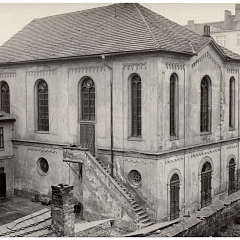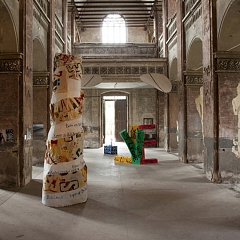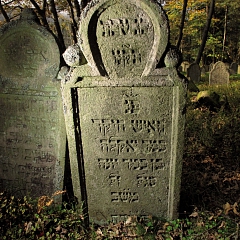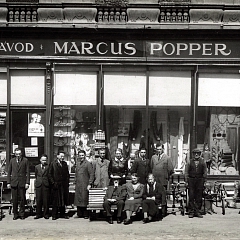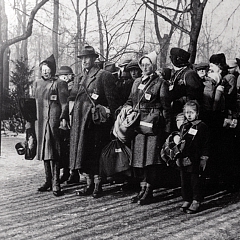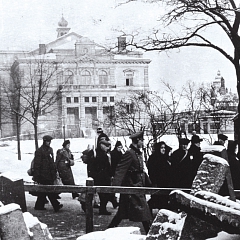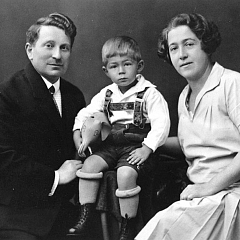
-
Plzeň
Jews in Plzeň
The beginnings of Jewish settlement in Plzeň (Pilsen) date back to the 14th century. During the Middle Ages, Jews settled in the area around today’s Sedláčkova and Solní streets. This was also the site of the town’s two oldest synagogues. In 1504, Plzeň received a royal privilege, which included the right to expel the Jews at any time. Most of Plzeň’s Jewish residents subsequently left town and settled in the surrounding communities. The oldest Jewish cemetery had been founded in the 15th century in the Plzeň suburb of Skvrňany, but after the Jews’ departure from Plzeň the cemetery ceased to exist and was replaced by gardens. During construction of the Plaza shopping center in 2006, several graves were found in this area. Towards the end of the 18th century, Jews again began to settle in Plzeň, and starting in the 19th century they actively contributed to the region’s transformation into an important industrial area. The Jewish community was re-established in 1849, and later Plzeň was made the seat of the regional rabbinate. In 1856, a Jewish cemetery was founded in Bolevec, followed three years later by a synagogue (today known as the Old Synagogue). Outside of the regional capital, several medieval Jewish settlements arose in smaller towns (Tachov, Domažlice, Rokycany) and in the 17th and 18th centuries the mountain regions were home to small rural Jewish communities. In the second half of the 19th century, Jews began to move into the cities. The Holocaust was a severe blow to Jewish settlement. Only about one tenth of Plzeň’s Jews survived the Nazi persecution, and rural Jewish communities disappeared altogether. Today’s Jewish Community in Plzeň is responsible for the Plzeň Region and part of the Karlovy Vary Region.
